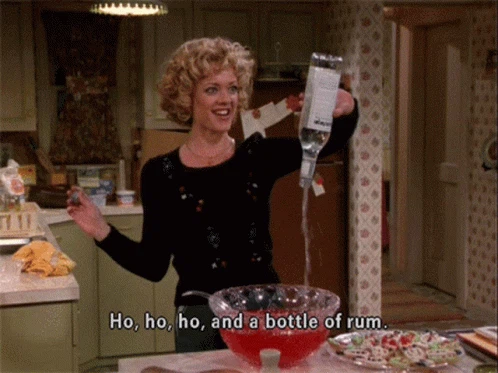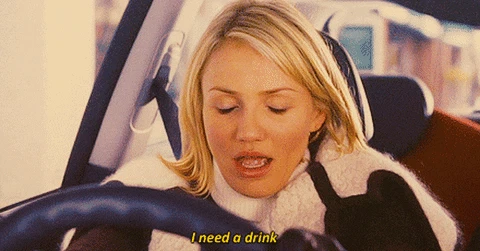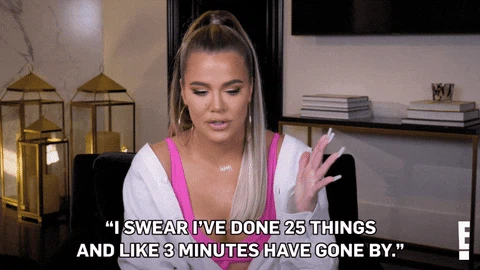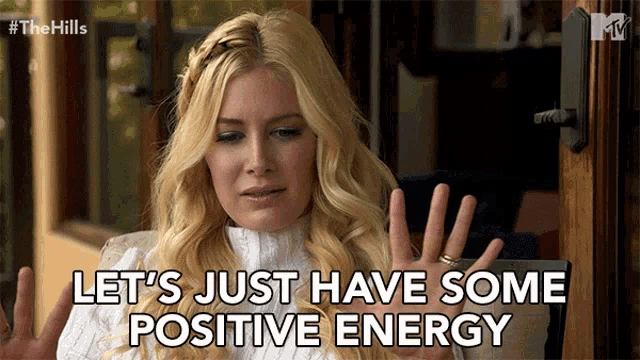How (And Why) To Participate In Dry January
Clearer skin, less brain fog, better digestion, more productivity, improved strength? Sign us up!

From Thanksgiving to Christmas to New Year’s Eve and all the other festivities in between, the holiday season at the end of each calendar year is packed full of quality time with friends and family, delicious meals and treats, and of course, quite a bit of drinking.

There’s no shame at all in having a glass or two of wine with Christmas dinner or sipping on the bubbly while you’re ringing in the new year, but if you’ve started to feel a bit exhausted with how your body, mind, or soul reacts to an increase in alcohol, then you might be eager to try out Dry January as part of your New Year's resolutions.
Dry January is a fully sober month where those on hiatus see how their body functions without alcohol, adjust their drinking habits, and hopefully have a healthier relationship with alcohol once February rolls around. Some go for a “Damp January,” where they simply cut back on alcohol, but others go cold turkey and opt for Dry January.
While we at Evie certainly aren’t into the health gimmicks and fad diets that leave women undernourished, over-exercised, potentially deprived of critical nutrients, and hormonally imbalanced, you might find that there are good reasons to give Dry January a shot, so we crafted your ultimate guide to going short-term sober.
Americans Have an Awful Relationship with Alcohol
Think you can manage the 31-day challenge? If you do, there’s actually a laundry list of potential health and wellness benefits. For starters, let’s address the elephant in the room: Alcohol is an addictive substance. We like how it makes us feel, but if we let ourselves like that feeling a little bit too much, we can genuinely get hooked.

1 in 10 Americans aged 12 and up has some form of an alcohol use disorder, and up to 141,000 Americans die from alcohol’s effects annually. Then, take into consideration the fact that over half of Americans started drinking more thanks to Covid-19 lockdowns, and research suggests that women actually had a more dramatic increase in drinking episodes than men during that time. Knowing that we already operate on binge-drinking culture to begin with – instead of the more balanced relationship with alcohol that Europe has, for example – the trajectory seems bleak in all honesty.

When you look into the concept of a Damp January, what it seems like to me is people yearning to enjoy alcohol more like a European than an American. Alcohol has deep cultural ties to gatherings, rituals, and entire job industries. Additionally, drinking it occasionally can help you unwind or maybe even get you in the mood on date night. Cutting back on alcohol instead of cutting it out entirely is a more sustainable practice, but a full-on Dry January is a great starting point toward improving your relationship with alcohol.
Don’t Knock All the Amazing Health Benefits of Teetotaling
As we know, binge drinking or just drinking too much too frequently can have serious negative effects on your body. The most obvious of all would be what it does to your brain, which is ironically one of the reasons why people choose to drink in the first place. Alcohol changes how your brain’s communication pathways work, which alters your mood, behavior, alertness, and coordination. Some people enjoy this temporary feeling, but when imbibing too often, you can actually change how your brain works and looks long-term: think hangovers, but that’s just your norm. As such, no alcohol means no hangovers and a much sharper focus.

This clearheaded feeling might also help you have more pep in your step because you’ll likely sleep better. Your productivity and overall focus at work and at home with loved ones will improve because you’re able to get better sleep instead of staying up late drinking, disturbing your digestion, and fogging up your mind. Alcohol actually blocks your REM sleep (the type you definitely want for optimal rest) despite it making you fall asleep more easily. It raises the amount of adenosine in your system, which might lead you to start dozing, but that chemical will wean as you’re sleeping. Let’s also not forget that alcohol is a diuretic, so if you cut it out from your system entirely, you might not have to get up as often in the middle of the night to use the bathroom.
That renewed pep in your step can also be a result of an alcohol-free lifestyle improving your musculature and energy levels to exercise. Alcohol can cause muscle myopathy and wasting in the long term and unquestionably makes it difficult to feel driven to exercise in the short term.

You might be mulling over trying to lose weight in the New Year, or perhaps you just want to improve on healthy habits. Well, alcohol isn’t really a necessary part of any diet since it provides little nutritional value or beneficial satiety. Say you’re drinking two to three drinks a night, every night of the week. On the low end, a typical drink has 150 calories, but if you’re drinking higher ABV cocktails and heavier wines and beers, you’re looking at anywhere from 250 to 400 calories and up per glass. That’s just if you’re sticking to a serving size, of course. Let’s not forget how highly caloric the typical hangover recovery foods are and how much more likely you are to try to soak up excessive alcohol with fatty foods. When not managed carefully, drinking culture can really pack some unintended pounds on you.
Going too hard on alcohol can have some much more serious effects on your health overall. Liver, colon, breast, colorectal, esophageal, and oral cavity cancers are all on the table if you abuse alcohol. Then there’s heart disease, hypertension, fatty liver disease, stroke, and chronic pancreatitis. Just doing one month dry won’t necessarily prevent any long-term complications or treat any ailments. That said, if you take a more balanced approach to alcohol after trying Dry January, you significantly reduce your risk of these serious health complications overall.

Part of this is due to the fact that intoxication suppresses your immune system. The National Institute on Alcohol Abuse and Alcoholism has found that just one night of binge drinking can make it hard for your body to fight off infections for up to a full day later. If you’re looking to better your immune system in 2023, perhaps starting with a sober month is the way to go.
Here’s Your Ultimate Guide on How to Participate
31 days is actually a pretty long time. During this period, you should get introspective and reflect on the process. Dry January is your time to reassess, rethink, and refine your relationship with alcohol.
Try Starting a Journal
Every day or every week, reflect on the feelings that arise. Are you having a hard time resisting? Do you feel tempted by glitzy-looking cocktails on your Instagram feed? Are you getting FOMO when your friends are sipping on some chardonnay, and you’re chugging still water? Dig even deeper. When is it that you find yourself craving alcohol? Is it when you’re feeling stressed because of project deadlines? Is there someone in your life – a friend, family member, or coworker – who triggers an anxious response that leads you to desire alcohol as an emotional crutch? Journal during this time as a method of identifying what emotional issues may be lying beneath your behaviors.

Hold Yourself Accountable
While you shouldn’t rely on the generosity of others to regulate your behavior, it’s a good practice to have a buddy or two who can be your best cheerleader and hold you accountable. Maybe they want to try out Dry January too! Whether they’re going sober or not, make sure you keep in touch regularly and verbally express your temptations and feelings.

You can also personally hold yourself accountable by finding a healthy replacement for alcohol during this time. Instead of popping open a bottle of Cab, stock your fridge with your non-alcoholic beverages of choice, whether that’s kombucha, flavored sparkling water, pressed juices, or teas.
Meet Your Fully Sober Body
Poor drinking habits may have left you feeling mentally and physically out of alignment, so Dry January is a great time to relearn what your natural body functions are like. Take some time to go out more on walks and try harder inclines. Maybe now is the perfect time for you to commit to regular exercise routines, whether that’s training in a gym or training at home using an app like 28.
Rethink Your Social Scene
Got in the weekend habit of bottomless mimosas, or find yourself sipping marg upon marg on Taco Tuesday? Use Dry January as a time to try new activities with your friends and tap into your creativity. Maybe you’ve been itching to try a group boxing class. Love to get creative and play mixologist together? Perhaps try making new recipes together, like learning how to make a sourdough loaf from scratch or bake something sweet for your beaux. Invite a couple of your gal pals and sweat it out! Instead of going out for happy hour, you can invite friends in for a self-care spa night or go out to get facials together.

Find Your Tried-and-True Drink Replacement
Look, I’m empathetic to the FOMO. I personally choose to drink less frequently but often find myself out at dinners for work or with family and friends. This may seem impossible at first, but you actually don’t have to skip girls’ night out, happy hours, or dinners just because you don’t want to drink. As funny as this sounds, liquids (and foods, for that matter) can only enter your body with your consent, so stay true to the challenge and let yourself say no instead of being pressured into ordering a drink.

There’s something to be said about being out socializing empty-handed; I’m not going to lie, it does look a bit out of social norms to not have some sort of beverage in your hand. But that beverage doesn’t have to be alcoholic, and no one needs to know unless you choose to tell them. A tonic or sparkling water with lime and mint garnish in a highball glass could very well be a tequila soda or mojito! Some plain diet cola in a rocks glass could be a Jack and Coke, and no one would know the difference. A champagne flute with straight-up OJ could pass as a mimosa. Bloody Marys can be made virgin. There’s no shortage of mocktail recipes, especially beautiful ones curated by pregnant women who need at least nine months of sobriety compared to Dry January’s one.
Trust the Process
Like I mentioned initially, you shouldn’t miss this opportunity to journal. Making intentional notes of what you’re feeling mentally is important for adjusting your relationship with alcohol, but you should also track the positive changes you’re seeing as you go through the 31 days. Is your diet improving? Have you been able to lift heavier weights or jog longer lengths? Are you more productive at work? Are you sticking to a good skincare routine? Have you been able to meditate or pray more? Are you feeling rested after sleeping? Have you made new, unique memories with friends, family, or your man? Frame this challenge less as something that you’re losing and more as the many positive things you’re gaining.

Go “Damp” in February
If you’re ready after 31 days to reintroduce alcohol responsibly into your diet, I’d recommend you try a “damp” challenge. Consider the following guidelines and see where you’d like to fit them in from February and onward.

Maybe you could drink fewer mixed drinks and more plain spirits or simpler beverages like wine or beer. Maybe you set a cap on how many drinks you sip in one sesh: for example, I max myself out at two drinks when I go out. Maybe you only drink socially instead of keeping a loaded liquor cabinet at home. Maybe you choose specific days of the week you can drink and specific days that you can’t, like the ones which coincide with needing to be in tip-top shape for work. Going “damp” instead of fully dry after January shouldn’t be too restrictive, but should still keep you on track for optimal health and mental wellbeing.
Closing Thoughts
Ultimately, Dry January is a great way to challenge the lifestyle you’ve grown so accustomed to. If, after participating, you decide to stay sober longer (or forever), then more power to you as it could be greatly beneficial down the road if you’re planning on having children or just want to better your health overall. Furthermore, you also don’t need to commit to a full month, but the longer challenge has been successful in weaning people off bad habits. However you choose to improve your alcohol intake, don’t feel ashamed for wanting a bit of a change. It’s your body, after all, and you’re well within your right to keep it in great condition.
Don’t miss anything! Sign up for our weekly newsletter and get curated content weekly!